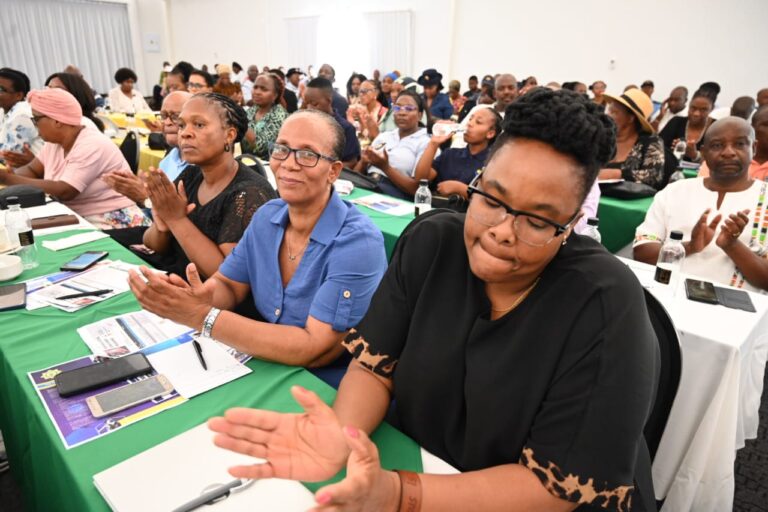| 2024/12/11 |
|
Media Statement POLOKWANE – The Limpopo Government’s two-day Provincial Gender-Based Violence (GBV) Summit, was held at the Ranch Hotel in Polokwane, on Monday 09 and Tuesday 10 December 2024. The summit was aimed at strengthening the battle against gender based violence through a multi-sectoral approach. This in turn will ensure that the safety of women and children is enhanced in communities. The summit brought together key stakeholders, including the Premier of Limpopo, Dr. Phophi Ramathuba, MEC of Social Development, Ms Florence Radzilani, MEC for Transport and Community Safety, Ms Violet Mathye, Executive Mayors, Provincial Commissioner, Lieutenant General Thembi Hadebe, HOD’s and Senior members of various government departments. The summit focused on implementing measures outlined in the Limpopo Province Implementation Plan for GBV, which includes increasing GBV shelters, expanding psychosocial support services, and enhancing healthcare services for victims. Research findings from the University of Limpopo revealed that 60.19% of participants have knowledge of GBV, with 70.9% of females and males participating in the study conducted in the Capricorn District. The perpetrators of this gender based violence are family members, intimate partners, and members of authorities. The Provincial Commissioner, Lieutenant General Thembi Hadebe emphasized the need for collective action, stating that the police cannot fight crime alone and require the support of traditional leaders, departments, and religious denominations. Key statistics highlighted during the summit include: Murder and attempted murder have shown a significant increase over the past five years. Red Flag Districts, Waterberg, and Sekhukhune are showing alarming rates of murder cases, while Mopani reported more Assault GBH cases. SAPS Limpopo is monitoring Thohoyandou, Seshego, and Mankweng stations for high crime rates as they appear on the top 30 priority stations. The summit’s six commissions, aligned with the National Strategic Plan’s six pillars, addressed critical areas, including: 1. Leadership Accountability: Coordination and prevention initiatives 2. Prevention and Rebuilding Social Cohesion: Strengthening social bonds 3. Justice, Safety, and Protection: Ensuring reported GBVF cases receive adequate support 4. Response, Care, Support, and Healing: Providing assistance to victims 5. Economic and Social Status: Addressing women’s economic and social well-being
6. Information and Research Base: Facilitating evidence-based responses to GBVF.
Enquiries:
|
|
|
| Additional content: |
|
|
Saturday, April 19
Trending
- Operation Vala Umgodi in Limpopo led to the arrest of seven suspects
- Government wishes the public a safe Passover and Easter Weekend
- Trump Warns of Possible U.S. Exit from Ukraine Peace Talks Amid Stalled Progress
- Western Cape Ramps Up Road Safety Measures Amid Sharp Rise in Easter Holiday Fatalities
- Bloemfontein Man Caught with Over 550 Stolen Phones Worth R2.5 Million
- SAPS detains two Nigerian nationals for dealing in drugs
- Live scoring: Sharks v Edinburgh
- Police make a breakthrough, a female suspect arrested for murder of her mother and uncle

